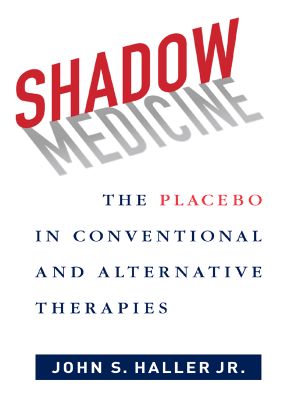Shadow Medicine

- Authors
- Haller, John S.
- Publisher
- Columbia University Press
- Tags
- medical , evidence-based medicine , med004000 , medical , alternative medicine , health , med112000
- ISBN
- 9780231537704
- Date
- 2014-07-08T00:00:00+00:00
- Size
- 0.56 MB
- Lang
- en
A distinguished historian of medicine, John S. Haller Jr. explores the epistemological foundations of evidence-based medicine (EBM) and the challenges it presents for both conventional and alternative therapies. In his exploration of a productive reconciliation in their conflicting approaches, Haller maintains a healthy, scientific skepticism but still finds promise in some complementary and alternative (CAM ) therapies. The placebo forms the central focus of the book, as Haller elucidates the latest findings on how new research about the placebo effect might lead to a more robust medical practice including both the objectivity of evidence-based medicine and the subjectivity and narrative truth of the physician-patient relationship.
The book offers a thoughtful tour of key topics in the standoff between EBM and CAM: how and why the double blinded, randomized clinical trial (RCT) came to be called the "gold standard" in modern medicine; the challenge of postmodern medicine...
A distinguished historian of medicine, John S. Haller Jr. explores the epistemological foundations of evidence-based medicine (EBM) and the challenges it presents for both conventional and alternative therapies. In his exploration of a productive reconciliation in their conflicting approaches, Haller maintains a healthy, scientific skepticism but still finds promise in some complementary and alternative (CAM ) therapies. The placebo forms the central focus of the book, as Haller elucidates the latest findings on how new research about the placebo effect might lead to a more robust medical practice including both the objectivity of evidence-based medicine and the subjectivity and narrative truth of the physician-patient relationship. The book offers a thoughtful tour of key topics in the standoff between EBM and CAM: how and why the double blinded, randomized clinical trial (RCT) came to be called the “gold standard” in modern medicine; the challenge of postmodern medicine that countered the positivism of evidence-based medicine; the politics of modern CAM and the rise of the National Center for Complementary and Alternative Medicine; an in-depth case study of homeopathy explaining why this modality has emerged as a poster-child for CAM; and finally an assessment of CAM’s popularity despite its poor performance in clinical trials. Haller ends with hope that new experimental protocols might tease out the evidentiary basis for the placebo effect, therefore establishing a foundation for some reconciliation between EBM and CAM.
Can Evidence Based Medicine (EBM) and Complementary and Alternative Medicine (CAM) find common ground? A distinguished historian of medicine, John S. Haller Jr., explores the epistemological foundations of EBM and the challenges these conceptual tools present for both conventional and alternative therapies. As he explores a possible reconciliation between their conflicting approaches, Haller maintains a healthy, scientific skepticism yet finds promise in select complementary and alternative (CAM) therapies. Haller elucidates recent research on the placebo effect and shows how a new engagement between EBM and CAM might lead to a more productive medical practice that includes both the objectivity of evidence-based medicine and the subjective truth of the physician-patient relationship.
Haller's book tours key topics in the standoff between EBM and CAM: how and why the double blinded, randomized clinical trial (RCT) came to be considered the gold standard in modern medicine; the challenge of postmodern medicine as it counters the positivism of evidence-based medicine; and the politics of modern CAM and the rise of the National Center for Complementary and Alternative Medicine. He conducts an in-depth case study of homeopathy, explaining why it has emerged as a poster-child for CAM, and assesses CAM's popularity despite its poor performance in clinical trials. Haller concludes with hope, showing how new experimental protocols might tease out the evidentiary basis for the placebo effect and establish a foundation for some reconciliation between EBM and CAM.--Gerry Grob, Rutgers University "ZME Science"